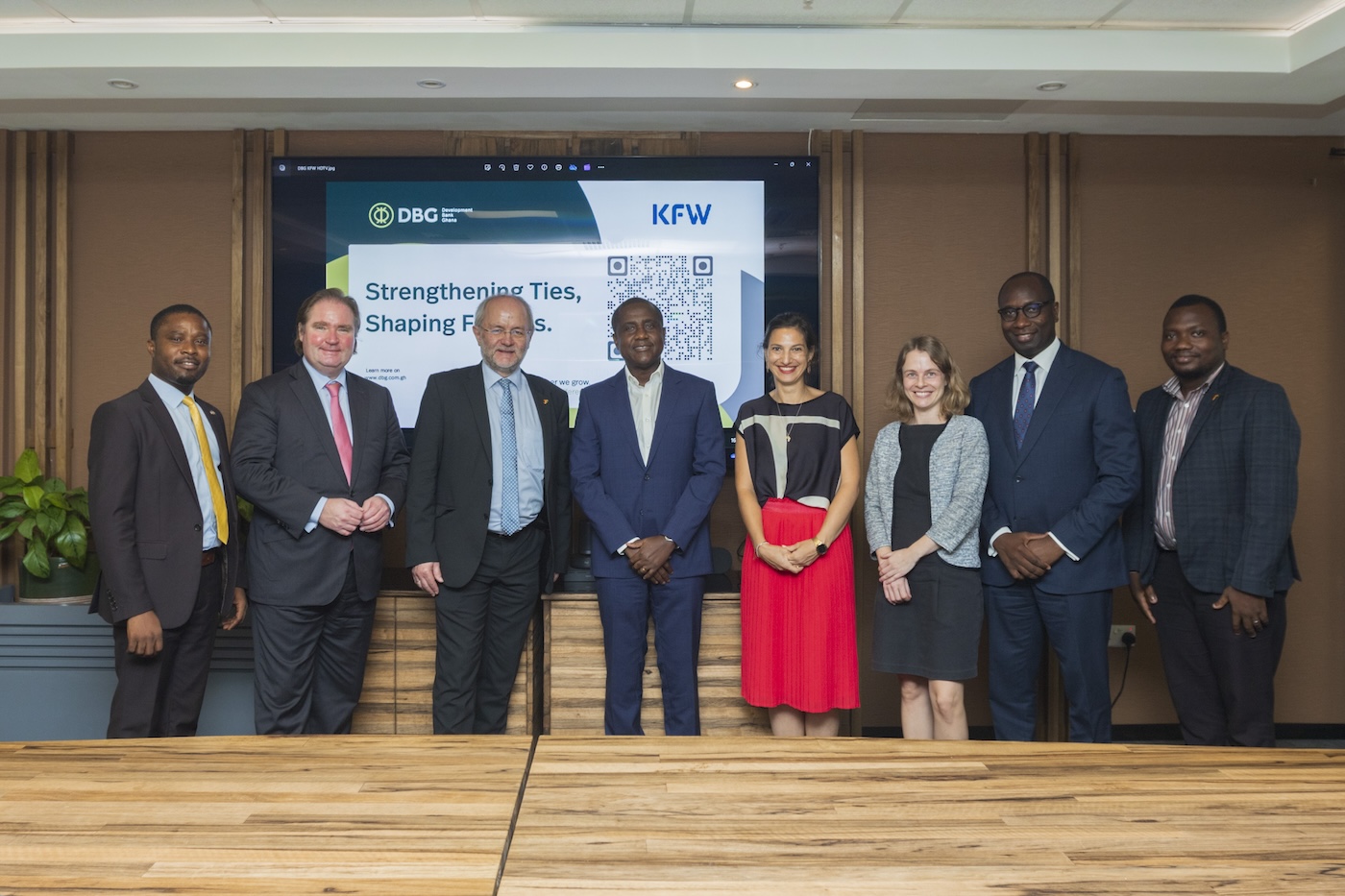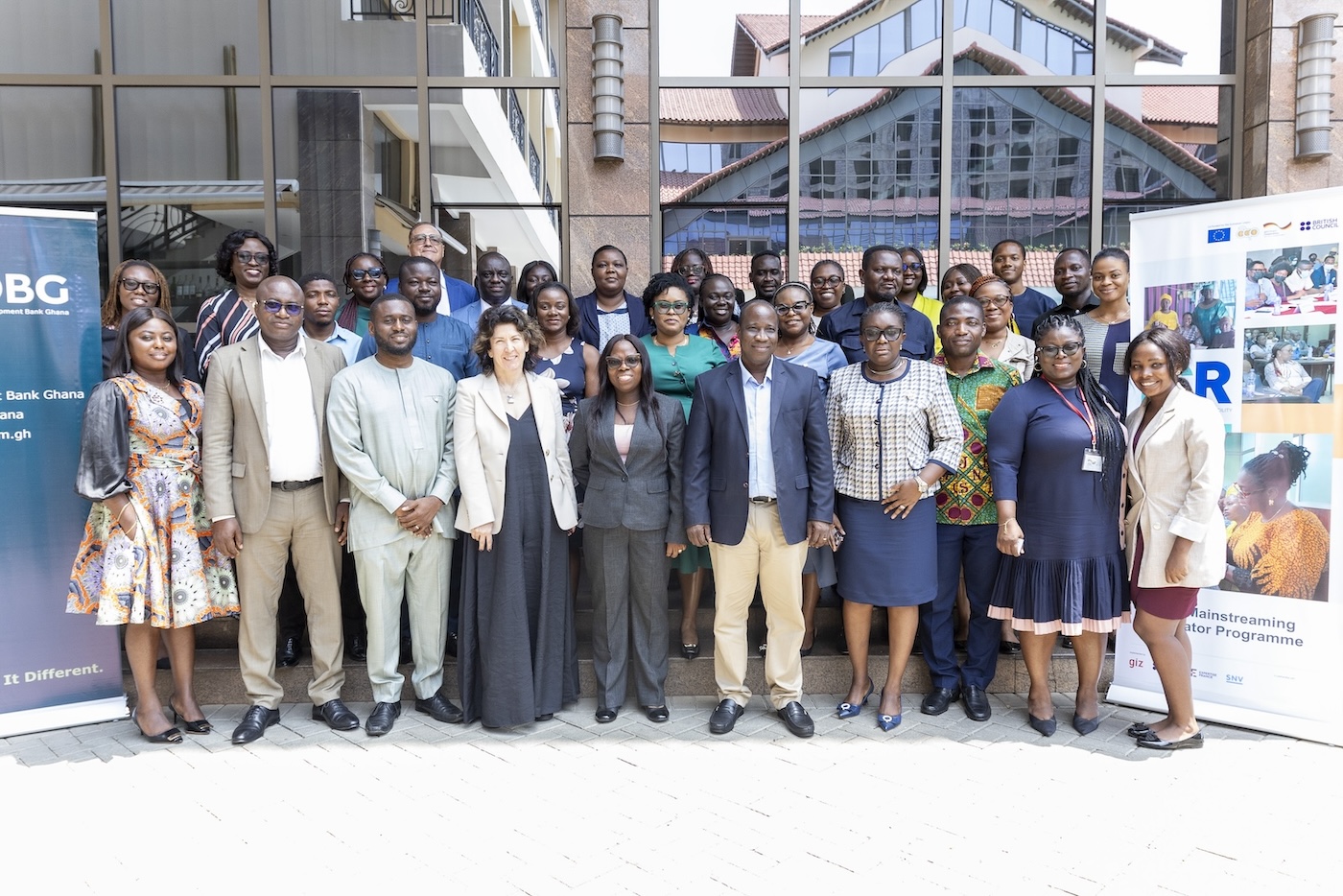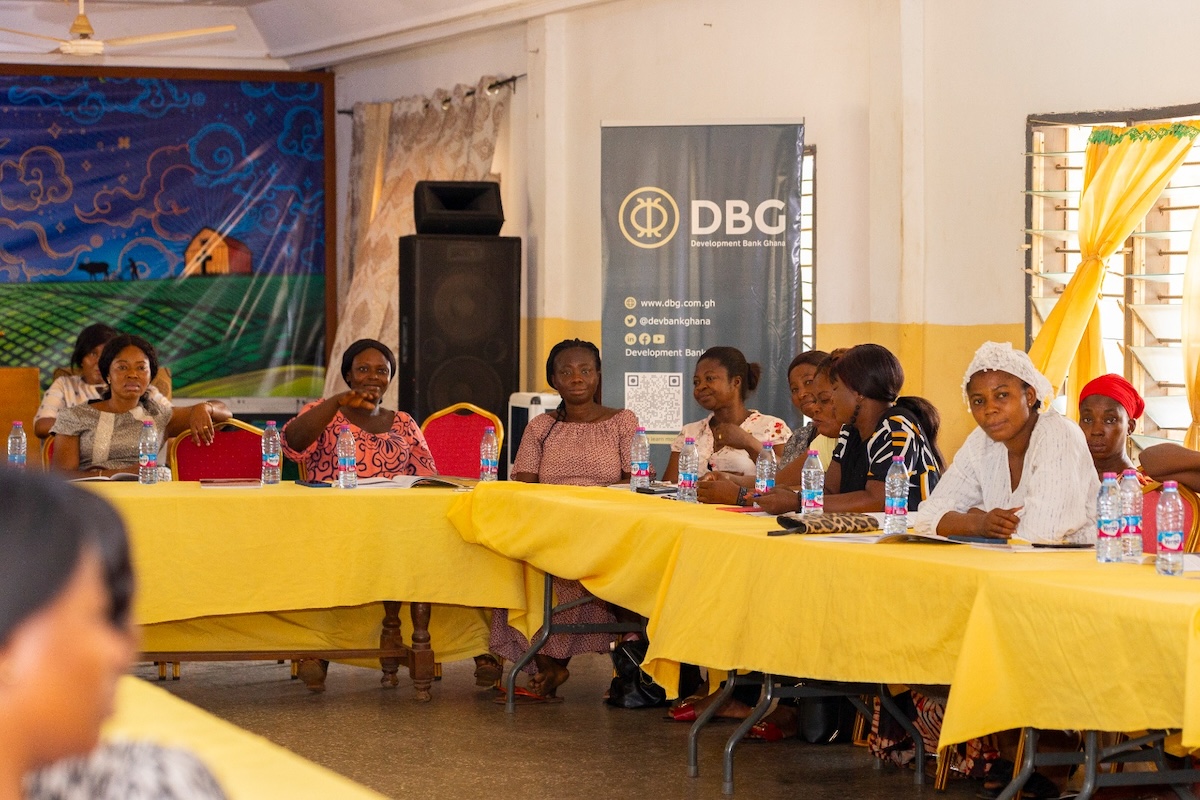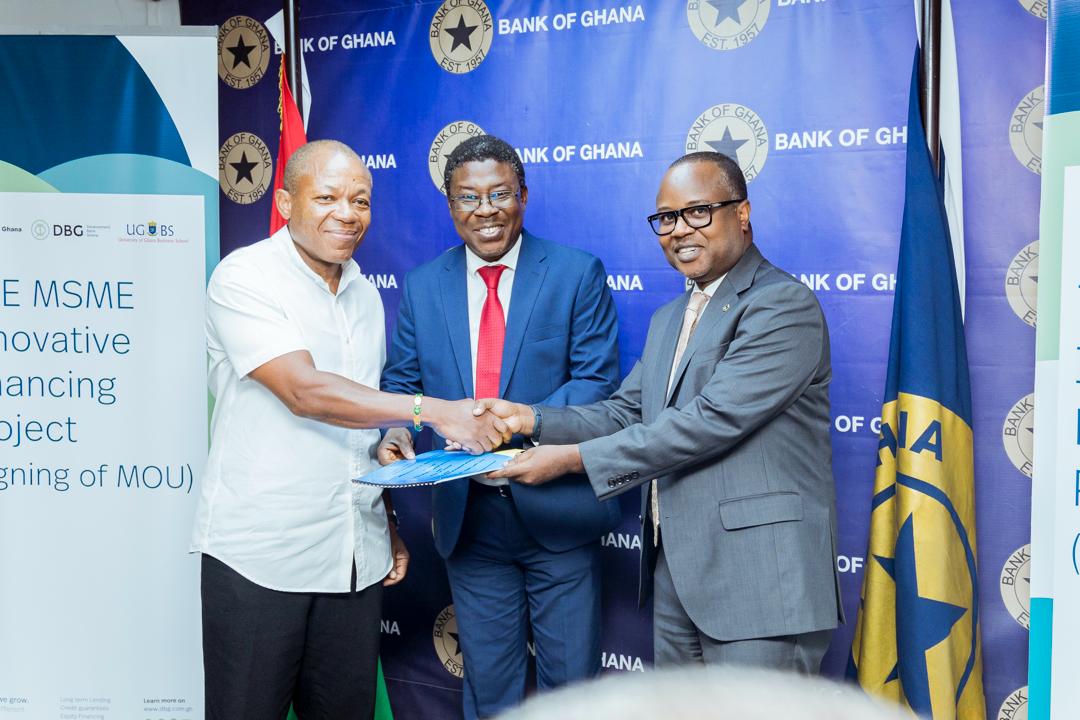DBG leads partnership of banks to tackle economy
Source: Business and Financial Times
Development Bank Ghana (DBG) plays a countercyclical role with universal banks to support local businesses when they need it the most.
In partnership with our universal banks, DBG is tirelessly working to bring support to our private sector in order to spur a quicker recovery leading to growth and sustainable prosperity for our local businesses.
Chief Executive Officers (CEOs) and Senior Executives of CalBank, Absa Bank, Consolidated Bank Ghana (CBG), GCB Bank, Fidelity Bank and Access Bank met to strategise on how the partnership with DBG can be strengthened and improved to benefit the nation. The meeting was hosted by DBG’s Chief Executive Officer, K. Duker.
In attendance were CEOs Philip Owiredu (CalBank); Kofi Adomakoh (GCB Bank); and Daniel Wilson Addo (CBG). The Senior Executives present were Thairu Ndungu, Deputy CEO (CBG); Ms. Amazing Grace Anim-Yeboah, Director Business Banking; and Mr. William Nettey, Head, Agribusiness (Absa); James Bruce, Head-Wholesale Banking and Solomon Ocquaye, Financial Institutions (Access Bank); Alex Agyei Amponsah, Director-Commercial and SME (Fidelity); Dzifa Nyansafo, Head of Credit (CalBank); Sam Aidoo, Director-Wholesale and Investment Banking and Linus Kumi, Head-Corporate Banking (GCB). Also in attendance were Dr. Yaw Ansu, Board Chairman of DBG; Kwesi Korboe, Chief Executive Officer of Ghana Incentive-based Risk Sharing System for Agricultural Lending (GIRSAL); and Michael Mensah-Baah, Deputy Managing Director-DBG.
This initiative dubbed the ‘DBG Economic Recovery Initiative’, has been fashioned out by the bank in line with its mandate to transform and develop the country’s economy by empowering the private sector.
The discussions centred on how DBG will work with commercial banks, GIRSAL and other partners to support the private sector with long-term capital in an efficient and effective manner. Areas of focus for the commercial banks include technology to build scale and efficiency, and advocacy to secure policy change in support of local industries and their related value-chain. It also includes building and increasing lending and developing prudential guidelines with associated safeguards to better realise DBG’s mandate.
DBG’s agenda for 2023 focuses on food security and seeks to offer long-term funding of GH¢500million to the agriculture sector, specifically for products like maize, soya, poultry and rice. There will be an additional GH¢500million funding for sectors like tourism and manufacturing. As has been the approach employed by DBG in empowering local businesses, the bank through its business partners – the Association of Ghana Industries (AGI), Ghana National Chamber of Commerce and Industry (GNCCI) and Ghana Chamber of Young Entrepreneurs (GCYE) – will provide technical assistance to 15,000 local businesses in order to build their capacity.
As part of DBG’s plans to deliver its mandate, the bank will this year introduce tailored solutions and further products for the benefit of local businesses. These will include Equity Funding and Partial Credit Guarantee.
Commenting on the bank’s economic recovery initiative, K. Duker, DBG’s Chief Executive said: “DBG remains focused on its agenda to empower local businesses in order to achieve a transformation of Ghana’s economy. Our Economic Recovery Initiative is primarily aimed at improving the already great partnerships that DBG has forged in its first year in order to achieve a higher level of success, which should see stronger local businesses who will form the backbone of our recovery and progress economically”.
Daniel Wilson Addo, CEO-CBG said: “There is no gainsaying the conspicuous fact that this initiative is very timely and should help all commercial banks to find ways of dealing with the challenges banks face currently, so as to enable us support the private sector better.
Kofi Adomakoh, CEO-GCB said: “We had a very fruitful discussion, and we are already tackling some of the bottlenecks. The Bank of Ghana and other institutions will be engaged on specific issues. In addition, we intend to carry out advocacy in the area of government policy relating to some of the industries we intend to support”.
Philip Owiredu, CEO-CalBank said: “It is now even more critical that DBG delivers on this mandate considering the economic challenges currently facing Ghana. At the end of the day, the good thing is we have taken the initiative to tackle head-on the responsibility of leading recovery of the economy, and that is a great step”.
In 2022, DBG provided funding of GH¢300million to local businesses in the agriculture, manufacturing and tourism sectors. Within the same period the bank with support from its partners provided capacity building to over 1,000 local businesses nationwide, including youth and women-owned entities. DBG’s partners in this endeavour have been GIRSAL, Ghana Chamber for Youth Entrepreneurs (GCYE), Ghana National Chamber for Commerce and Industry (GNCCI), Ghana Enterprises Agency (GEA), Ghana Stock Exchange (GSE), Association of Ghana Industries (AGI) and PriceWaterhouse Coopers (PwC). The bank’s partners also include universal banks like CBG, CalBank, Access Bank and Fidelity Bank.




